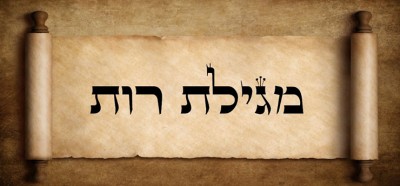
It is customary to read Megillat Rut on Shavuot, and several different reasons have been given for this custom. Rav Mordechai Ben Hillel explains that the story of Rut took place during the harvest season, around the time of Shavuot, and it is therefore appropriate to read this story on this holiday. Others explain that at the time of Matan Torah, the Jewish People underwent a process of "conversion," for, like converts, they had been obligated only in the Seven Noachide Laws, and then committed themselves to the Torah’s 613 commands. (Interestingly, the Hebrew word "Gerut" has the numerical value of 620, corresponding to the 613 Biblical commands plus the seven Mitzvot instituted by the Sages.) Therefore, on the day we celebrate Matan Torah, we read the story of Rut, which tells of Rut’s conversion and acceptance of the Mitzvot. Thirdly, we read Megillat Rut as a reminder that accepting the Torah includes not only our obligations toward Hashem, but also our obligations to other people. The story of Rut is all about Chesed (kindness): Rut accompanied her mother-in-law, Naomi, and left her homeland to be at her side; Boaz cared for Rut when she arrived in Bet-Lechem, and then married her; Rut performed kindness for her deceased husband by allowing his soul to be perpetuated through the process of Yibum. We read this story to remind ourselves that kindness and sensitivity to other people is part and parcel of our acceptance of the Torah. Additionally, Megillat Rut is a story of remarkable "Mesirut Nefesh" – self-sacrifice. Rut was the daughter of the king of Moav, yet she was prepared to leave her life of royalty and all the amenities and luxuries it offers in order to become a Jew. This story reminds us that we need to sacrifice in order to succeed in Torah and Mitzvot. We cannot expect to excel in our devotion to Torah while enjoying all the comforts and luxuries that life offers. "Mesirut Nefesh" is an indispensable prerequisite for a successful Torah life. Finally, the story of Megillat Rut concludes with Rut’s marriage to Boaz and the birth of their son, who ultimately became the grandfather of King David, who was born and passed away on Shavuot. It is thus appropriate to read this story on Shavuot, when we remember and reflect upon David Hamelech.
By Rabbi Eli Mansour
The Custom to Read Megillat Rut on Shavuot
Typography
- Smaller Small Medium Big Bigger
- Default Helvetica Segoe Georgia Times
- Reading Mode




